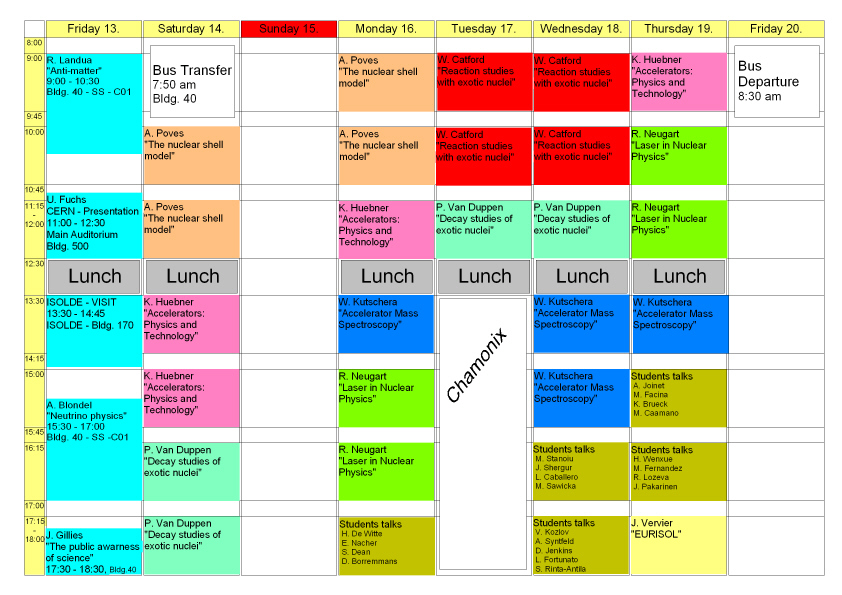
From Alfie Kohn's website :
This is an excerpt from Alfie Kohn's recently published book The Homework Myth: Why Our Kids Get Too Much of a Bad Thing. For one teacher's response to this excerpt, read In Defense of Homework.
It may surprise you, as it did me, to learn that no study has ever demonstrated any academic benefit to assigning homework before children are in high school. In fact, even in high school, the association between homework and achievement is weak -- and the data don't show that homework is responsible for higher achievement. (Correlation doesn't imply causation.)
Finally, there isn't a shred of evidence to support the folk wisdom that homework provides nonacademic benefits at any age -- for example, that it builds character, promotes self-discipline, or teaches good work habits. We're all familiar with the downside of homework: the frustration and exhaustion, the family conflict, time lost for other activities, and possible diminution of children's interest in learning. But the stubborn belief that all of this must be worth it, that the gain must outweigh the pain, relies on faith rather than evidence.
So why does homework continue to be assigned and accepted? Possible reasons include a lack of respect for research, a lack of respect for children (implicit in a determination to keep them busy after school), a lack of understanding about the nature of learning (implicit in the emphasis on practicing skills and the assertion that homework "reinforces" school lessons), or the top-down pressures to teach more stuff faster in order to pump up test scores so we can chant "We're number one!"
All of these explanations are plausible, but I think there's also something else responsible for our continuing to feed children this latter-day cod-liver oil. We don't ask challenging questions about homework because we don't ask challenging questions about most things. Too many of us sound like Robert Frost's neighbor, the man who "will not go behind his father's saying." Too many of us, when pressed about some habit or belief we've adopted, are apt to reply, "Well, that's just the way I was raised" -- as if it were impossible to critically examine the values one was taught. Too many of us, including some who work in the field of education, seem to have lost our capacity to be outraged by the outrageous; when handed foolish and destructive mandates, we respond by asking for guidance on how best to carry them out.
Passivity is a habit acquired early. From our first days in school we are carefully instructed in what has been called the "hidden curriculum": how to do what one is told and stay out of trouble. There are rewards, both tangible and symbolic, for those who behave properly and penalties for those who don't. As students, we're trained to sit still, listen to what the teacher says, run our highlighters across whatever words in the book we'll be required to commit to memory. Pretty soon, we become less likely to ask (or even wonder) whether what we're being taught really makes sense. We just want to know whether it's going to be on the test.
When we find ourselves unhappy with some practice or policy, we're encouraged to focus on incidental aspects of what's going on, to ask questions about the details of implementation -- how something will get done, or by whom, or on what schedule -- but not whether it should be done at all. The more that we attend to secondary concerns, the more the primary issues -- the overarching structures and underlying premises -- are strengthened. We're led to avoid the radical questions -- and I use that adjective in its original sense: Radical comes from the Latin word for "root." It's partly because we spend our time worrying about the tendrils that the weed continues to grow. Noam Chomsky put it this way: "The smart way to keep people passive and obedient is to strictly limit the spectrum of acceptable opinion, but allow very lively debate within that spectrum -- even encourage the more critical and dissident views. That gives people the sense that there's free thinking going on, while all the time the presuppositions of the system are being reinforced by the limits put on the range of the debate."
Parents have already been conditioned to accept most of what is done to their children at school, for example, and so their critical energies are confined to the periphery. Sometimes I entertain myself by speculating about how ingrained this pattern really is. If a school administrator were to announce that, starting next week, students will be made to stand outside in the rain and memorize the phone book, I suspect we parents would promptly speak up . . . to ask whether the Yellow Pages will be included. Or perhaps we'd want to know how much of their grade this activity will count for. One of the more outspoken moms might even demand to know whether her child will be permitted to wear a raincoat.
Our education system, meanwhile, is busily avoiding important topics in its own right. For every question that's asked in this field, there are other, more vital questions that are never raised. Educators weigh different techniques of "behavior management" but rarely examine the imperative to focus on behavior -- that is, observable actions -- rather than on reasons and needs and the children who have them. Teachers think about what classroom rules they ought to introduce but are unlikely to ask why they're doing so unilaterally, why students aren't participating in such decisions. It's probably not a coincidence that most schools of education require prospective teachers to take a course called Methods, but there is no course called Goals.
And so we return to the question of homework. Parents anxiously grill teachers about their policies on this topic, but they mostly ask about the details of the assignments their children will be made to do. If homework is a given, it's certainly understandable that one would want to make sure it's being done "correctly." But this begs the question of whether, and why, it should be a given. The willingness not to ask provides another explanation for how a practice can persist even if it hurts more than helps.
For their part, teachers regularly witness how many children are made miserable by homework and how many resist doing it. Some respond with sympathy and respect. Others reach for bribes and threats to compel students to turn in the assignments; indeed, they may insist these inducements are necessary: "If the kids weren't being graded, they'd never do it!" Even if true, this is less an argument for grades and other coercive tactics than an invitation to reconsider the value of those assignments. Or so one might think. However, teachers had to do homework when they were students, and they've likely been expected to give it at every school where they've worked. The idea that homework must be assigned is the premise, not the conclusion -- and it's a premise that's rarely examined by educators.
Unlike parents and teachers, scholars are a step removed from the classroom and therefore have the luxury of pursuing potentially uncomfortable areas of investigation. But few do. Instead, they are more likely to ask, "How much time should students spend on homework?" or "Which strategies will succeed in improving homework completion rates?" which is simply assumed to be desirable.
Policy groups, too, are more likely to act as cheerleaders than as thoughtful critics. The major document on the subject issued jointly by the National PTA and the National Education Association, for example, concedes that children often complain about homework, but never considers the possibility that their complaints may be justified. Parents are exhorted to "show your children that you think homework is important" -- regardless of whether it is, or even whether one really believes this is true -- and to praise them for compliance.
Health professionals, meanwhile, have begun raising concerns about the weight of children's backpacks and then recommending . . . exercises to strengthen their backs! This was also the tack taken by People magazine: An article about families struggling to cope with excessive homework was accompanied by a sidebar that offered some "ways to minimize the strain on young backs" -- for example, "pick a [back]pack with padded shoulder straps."
The People article reminds us that the popular press does occasionally -- cyclically -- take note of how much homework children have to do, and how varied and virulent are its effects. But such inquiries are rarely penetrating and their conclusions almost never rock the boat. Time magazine published a cover essay in 2003 entitled "The Homework Ate My Family." It opened with affecting and even alarming stories of homework's harms. Several pages later, however, it closed with a finger-wagging declaration that "both parents and students must be willing to embrace the 'work' component of homework -- to recognize the quiet satisfaction that comes from practice and drill." Likewise an essay on the Family Education Network's Web site: "Yes, homework is sometimes dull, or too easy, or too difficult. That doesn't mean that it shouldn't be taken seriously." (One wonders what would have to be true before we'd be justified in not taking something seriously.)
Nor, apparently, are these questions seen as appropriate by most medical and mental health professionals. When a child resists doing homework -- or complying with other demands -- their job is to get the child back on track. Very rarely is there any inquiry into the value of the homework or the reasonableness of the demands. One prominent example of this sensibility is pediatrician and author Mel Levine, whose advice for dealing with kids who don't do what they've been told reads like a heavy-handed parody of early-twentieth-century scientific management -- except that he wants us to chart the "work output" of six-year-olds. Parents "need to take on the sometimes adversarial and perverse authoritarian role of taskmaster," he tells us. They should "set up and enforce consistent work times" and limit the hours that children spend on purely relaxing activities, which are "likely to be detrimental to output." Levine offers helpful examples of logs, charts, and bar graphs that should be posted in our homes so we can keep track of kids' productive output.
Someone who looks at children and sees (insufficiently productive) workers is unlikely to raise questions about the structural imperatives of schooling -- what kids are made to do, and why, and whether it is of any value to the kids themselves. Levine offers case studies of children who don't do their homework, but never once examines the content of the assignments to determine whether they're likely to be beneficial, let alone what basis there is for believing that homework in general is necessary. Our goal, as parents and teachers, is merely to maximize kids' "output," to make them more efficient at carrying out any instructions they've been given.
Sometimes parents are invited to talk to teachers about homework -- providing that their concerns are "appropriate." The same is true of formal opportunities for offering feedback. A list of sample survey questions offered to principals by the central office in one Colorado school district is typical. Parents were asked to indicate whether they agree or disagree with the following statements: "My child understands how to do his/her homework"; "Teachers at this school give me useful suggestions about how to help my child with schoolwork"; "Homework assignments allow me to see what my student is being taught and how he/she is learning"; and "The amount of homework my child receives is (choose one): too much/just right/too little."
The most striking feature of such a list is what isn't on it. Such a questionnaire seems to have been designed to illustrate Chomsky's point about encouraging lively discussion within a narrow spectrum of acceptable opinion, the better to reinforce the key presuppositions of the system. Parents' feedback is earnestly sought -- on these questions only. So, too, for the popular articles that criticize homework, or the parents who speak out: The focus is generally limited to how much is being assigned. I'm sympathetic to this concern, but I'm more struck by how it misses much of what matters. We sometimes forget that not everything that's destructive when done to excess is innocuous when done in moderation. Sometimes the problem is with what's being done, or at least the way it's being done, rather than just with how much of it is being done.
The more we are invited to think in Goldilocks terms (too much, too little, or just right?), the less likely we become to step back and ask the questions that count: What reason is there to think that any quantity of the kind of homework our kids are getting is really worth doing? What evidence exists to show that daily homework, regardless of its nature, is necessary for children to become better thinkers? Why did the students have no chance to participate in deciding which of their assignments ought to be taken home?
And: What if there was no homework at all?
If anyone has a copy of this book I would love to read this. Being on a split schedule I don't even like doing homework.












